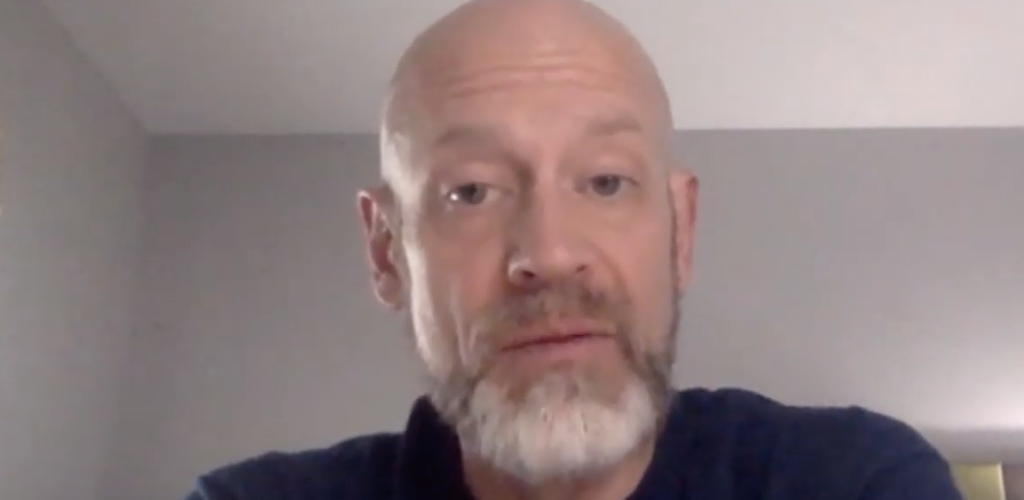
James White, the “Scholar in Residence” at Apologia Church and host of The Dividing Line podcast, had some tough words for the Ethics and Religious Liberty Commission of the Southern Baptist Convention. He posted the following on his public Facebook page.
I received an email soliciting donations for the Southern Baptist ERLC (The Ethics & Religious Liberty Commission). I found it quite interesting. It was signed by Brent Leatherwood, “Director of Strategic Partnerships.” It was brief, and began with a paragraph noting how the ERLC had gone to the “next level of gospel ministry” in 2018. There were three ways in which this had happened. Each was given a single sentence summary. The first was, “This year alone, we placed five life-saving ultrasound machines in pro-life pregnancy resource centers across the country.” Well, that’s a good thing, as I imagine those are not inexpensive units. The third was rather vague, since numerous groups (for example, Alliance Defending Freedom) are involved in this area, but the summary was, “And we successfully fought for religious liberty and pro-life speech in U.S. Supreme Court legal briefs.” Definitely need folks involved there.
But the second of the three was encapsulated in this sentence: “We helped the church better understand that racial unity is a biblical calling for Christians by hosting thousands in Memphis at our biggest conference ever.” I am assuming this is in reference to the MLK50 conference held April 3-4, 2018 in cooperation with The Gospel Coalition. So the second of the three accomplishments was how the ERLC “helped the church better understand racial unity.”
I was reminded of some of the presentations from that gathering, and in particular, the presentation by Pastor Eric Mason (author of the book, “Woke Church” which came out later in the year) in which he not only insisted that racial unity today *demands* we be backward looking, that is, that we define the relationships between believers upon their historical ethnic groupings and hence live in the light of past sins rather than present redemption, but in which he referred to “non-qualified blacks” that he described as “black on the outside but Angloid on the inside.” Of course, that is a phrase that could not be uttered by anyone with any ethnic heritage other than African, and, I would argue, should not be accepted by anyone in any context, no matter what the speaker’s ethnic heritage or skin color, for it is not only biased and prejudiced and unfair, it is based upon a set of presuppositions that have no place in a serious gospel context. This was the same conference in which one Preston Perry threw Dr. Voddie Baucham under the bus in a “spoken word” presentation regarding Mike Brown.
A few days ago Russell Moore, the head of the ERLC, promoted a New Yorker piece that glowingly presented the thought of Thomas Merton. Merton is not a name most evangelicals know, and the only reason I know it is because I went to a seminary significantly to my left, theologically speaking. Merton’s spirituality was an eclectic mix of all sorts of traditions, many well outside the Christian faith, and the final form of his understanding did not include the necessary, definitional truths of the gospel. I have seen many down through the years wander slowly out of the faith, and often they did so under the guise of reading the “spiritual authors” that had no fealty to the gospel itself. And I was left wondering, with all the deep, wonderful, orthodox material out there that is part of our history, why promote Merton? Then I realized, so much of that deep material is now stigmatized by the evil that is “intersectionality” and the constant paradigmatic emphasis upon “oppressor/oppressed.”
I know many in the SBC. I hear them talking. I think if someone would stand up, someone with some history, some standing, and say, “Enough of this,” there would be a major revolution. Might it be too late? Possibly. The major denominational structures are already heavily compromised when it comes to embracing “intersectionality” in all its grotesque manifestations. But there is a lot of common sense left, and while it is still there, the possibility does exist to see a change. I’m hearing a lot about refusing to give CP (Cooperative Program) funds if those funds will be used to promote leftist causes and political movements. But is even that already too late, in light of the influx of funds from other sources, sources that plainly want to see the SBC, and other conservative Christian organizations, turned into “progressive” powerhouses? We will see in just a matter of years, given how fast things move today. Till then, I can hardly question the motivations of the concerned members of a Southern Baptist church who feels tremendous conflict upon receiving the email I did. Ultrasound machines? Great! Religious liberty briefs at the Supreme Court? Wonderful! Neo-Marxist worldview concepts like intersectionality being promoted in local churches? Not so much.
[Editor’s Note: Brent Leatherwood, mentioned above, is the one










